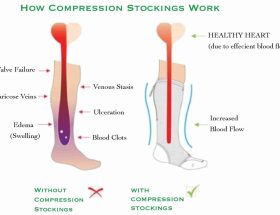Mindfulness is the practice of intentionally bringing one’s attention to the present moment, without judgement. It is all about being fully present, aware, and engaged in the here and now. While the concept may seem simple, incorporating mindfulness into our everyday lives can significantly improve our overall well-being and quality of life.
Why Practice Mindfulness?
In our fast-paced modern world, it is easy to get caught up in the stresses and distractions of daily life. Our minds are often filled with concerns about the past or worries about the future, neglecting the present moment. This constant mental chatter can lead to increased stress, anxiety, and a sense of being disconnected from ourselves and our surroundings.
Practicing mindfulness offers numerous benefits for both our mental and physical health. By cultivating an attitude of non-judgment and acceptance, mindfulness allows us to observe our thoughts and emotions without getting caught up in them. This awareness helps us better manage stress, improve focus and attention, boost creativity, and enhance our relationships with others.
Simple Techniques for Everyday Mindfulness
1. Mindful Breathing: One of the simplest and most accessible ways to practice mindfulness is through focused breathing. Take a few moments each day to sit comfortably and pay attention to your breath. Observe the sensations of each inhale and exhale, allowing yourself to fully experience the present moment.
2. Body Scan: Another powerful mindfulness technique is the body scan. This involves systematically moving your attention through different parts of your body, noticing any sensations, tension, or discomfort. This practice helps you connect with your physical body and promotes relaxation.
3. Mindful Eating: In our fast-paced culture, we often rush through meals without truly savoring the experience. Mindful eating encourages us to slow down and pay attention to the colors, textures, smells, and flavors of our food. Take small bites, chew slowly, and savor each mouthful, fully experiencing the pleasure of eating.
4. Mindful Walking: Walking meditation is a great way to incorporate mindfulness into your everyday routine. As you walk, bring your attention to the sensations of your feet touching the ground, the movement of your body, and the sights and sounds around you. Engaging your senses in this way helps anchor you in the present moment.
5. Mindful Listening: Communication is an essential part of our lives, yet we often listen without truly hearing. Practice mindful listening by giving your full attention to the person speaking to you. Put aside any distractions, focus on their words, and try to understand their message without interrupting or judging.
Tips for Cultivating Mindfulness
1. Start Small: Begin with just a few minutes of mindfulness practice each day and gradually increase the duration over time. Consistency is key, so find a time and place that works for you and commit to regular practice.
2. Be Patient: Mindfulness is a skill that takes time to develop. Don’t get discouraged if your mind wanders or if you find it challenging to stay present at first. With practice, it becomes easier to focus and sustain attention.
3. Incorporate Mindfulness into Daily Activities: Look for opportunities to infuse mindfulness into your daily routine. Whether it’s brushing your teeth, washing dishes, or taking a shower, bring your full attention to the present moment and engage your senses.
4. Find Support: Joining a mindfulness group or attending a meditation class can provide valuable support and guidance on your mindfulness journey. Connecting with others who share your interest can help boost your motivation and deepen your practice.
Conclusion
Mindfulness is not a magic pill that will solve all our problems, but it offers a powerful tool for managing stress, finding inner calm, and developing a greater sense of well-being. By incorporating simple mindfulness techniques into our everyday lives, we can become more present, attentive, and connected, leading to a more fulfilling and meaningful existence.








